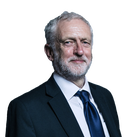G7 leaders are guilty of vaccine nationalism – this shameful stance will prolong the pandemic
The plan to donate 1 billion doses of the vaccine is too slow and paltry to halt the virus. To stop the spread of Covid and save lives, the UK and Canada must sign up to waive vaccine intellectual property rights

Your support helps us to tell the story
From reproductive rights to climate change to Big Tech, The Independent is on the ground when the story is developing. Whether it's investigating the financials of Elon Musk's pro-Trump PAC or producing our latest documentary, 'The A Word', which shines a light on the American women fighting for reproductive rights, we know how important it is to parse out the facts from the messaging.
At such a critical moment in US history, we need reporters on the ground. Your donation allows us to keep sending journalists to speak to both sides of the story.
The Independent is trusted by Americans across the entire political spectrum. And unlike many other quality news outlets, we choose not to lock Americans out of our reporting and analysis with paywalls. We believe quality journalism should be available to everyone, paid for by those who can afford it.
Your support makes all the difference.Last week, the presidents and prime ministers of the Group of Seven (G7) – featuring the UK’s Boris Johnson and Canada’s Justin Trudeau – gathered in Cornwall with a mandate to develop a plan for ending the Covid-19 pandemic that has cost at least 4 million lives and counting.
They failed. Simply put, the heralded plan to donate 1 billion doses of the Covid-19 vaccine is both too slow and too paltry to halt the vicious spread of the virus. It commits less than 10 per cent of the doses necessary to vaccinate the world, and spreads them out over an extra year and a half. As the UN general-secretary, Antonio Guterres, said: “We need more than that.”
The victims of this failure are not only vulnerable communities in regions such as Sub-Saharan Africa or Southeast Asia, which at present rates could, according to Alliance research, take 57 years to reach mass vaccination. By enabling mutant strains to emerge and spread, the G7 plan threatens to bring the pandemic back to countries like Canada and the UK, erasing the progress we have already made to protect our communities from the virus.
We urgently need an alternative to the G7 plan – an alternative that is global, feasible, and seriously focused on ending the pandemic rather than protecting pharmaceutical corporations or selling a storyline of our countries’ charitable goodwill.
That is why we are joining forces with governments, health officials, and vaccine manufacturers from around the world in a Summit for Vaccine Internationalism. Organised by Progressive International, the summit aims to develop a common plan to vaccinate the world by sharing technology, investing in production, and delivering vaccines to all parts of the planet. Far from a podium for political declarations, the summit calls on all participants to make concrete commitments toward a true alternative to the failed G7 plan.
We know that these commitments start at home – in Canada and the United Kingdom. Our governments have played a shameful role in prolonging this pandemic. They are guilty of precisely the vaccine nationalism that the summit aims to transcend.
In the UK, Boris Johnson’s government has been an ardent opponent of the waiver on vaccine intellectual property that has been presented to the World Trade Organisation (WTO) by more than 100 nations around the world. Even as countries like the United States, France, and Spain have softened their stance on vaccine patents, the United Kingdom continues to ignore pleas from scientists, doctors, and citizens to speed up vaccine production by liberating vaccine technology from pharmaceutical corporations like AstraZeneca – despite the AstraZeneca’s vaccine reportedly being 97 per cent funded by the UK public.
In Canada, Justin Trudeau’s government has behaved no better. Trudeau may claim that Canada is “not interfering or blocking” the global effort to waive vaccine patents, but the record shows the opposite. Just last month, for example, the government in Bolivia reached an agreement with Canada-based drug manufacturer Biolyse to acquire desperately needed vaccines for the South American country, which has only been able to vaccinate 5 per cent of its citizens. But Trudeau’s government has refused to grant the compulsory license that would enable Biolyse to produce the vaccines.
Back in December, Trudeau’s government asked the proponents of the WTO waiver for “concrete” evidence that patents have restricted their access to the Covid-19 vaccines. Now, the Bolivian government has provided it – but the Canadian government continues to prop up the broken pharmaceutical system to deadly effect.
In addition to this, Canada’s failure to bring back a publicly owned laboratory, Connaught Laboratories, which was privatised in the 1980s, has cost Canadians and the world in this pandemic. Connaught was on the cutting edge of vaccine innovation at home and internationally. Without it, Canada was not able to publicly produce vaccines for its own citizens during this pandemic nor produce vaccines to share with the world.
The Summit for Vaccine Internationalism is an opportunity for us to hear from participants like Rogelio Mayta, the foreign minister of Bolivia, about the challenges his country faces, the opportunities for Global South cooperation to end the pandemic, and the historic obligation that we have to facilitate them.
We are incensed but not surprised by the failure of the G7 leaders to heed this obligation. Now, we have a chance to come together in a global gathering to get serious about the production, distribution and delivery of vaccines to the world. We hope you will join us.
Jeremy Corbyn is Labour MP for Islington North, and former leader of the Labour Party.
Niki Ashton is a member of the Canadian House of Commons

Join our commenting forum
Join thought-provoking conversations, follow other Independent readers and see their replies
Comments